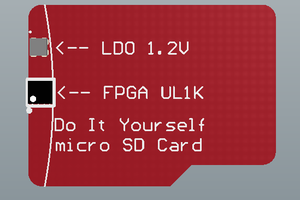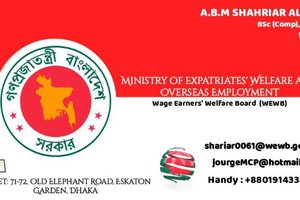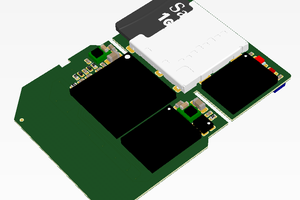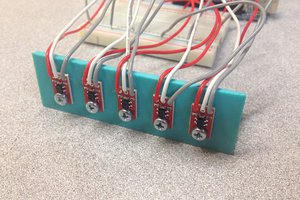A few months ago, I saw a tutorial about PCB business cards, and since then, I’ve seen dozens of PCB business card designs. I believe that not only electronics engineers or electronic enthusiasts should have the experience of owning a beautiful PCB business card, because PCB design is art.
For that reason, I decided to prepare several concepts of business cards for me, family and friends. Here are the requirements I set for myself:
- Card size: The card size should be 90 mm by 50 mm, the standard size of a business card. Later, I changed this requirement to 86 mm by 54 mm, the size of a credit card, which I found more convenient for a wallet.
- Card thickness: The card thickness should be 0.6 mm or 0.8 mm. In the case of an NFC card, the components should be as flat as possible and not exceed 0.5 mm above the card.
- Card price: The card price should be minimal (around $1-3 per unit) to make it affordable for everyone.
- Aesthetics: Aesthetics is the most important aspect of the card to make a good impression on the recipient.
- Useful features: The card should have useful features such as a ruler, NFC, useful data, etc. The main purpose of this requirement is to make the card a useful tool for others.
Business Card Specifications:
- Thickness: Each business card's thickness is 0.6 mm or 0.8 mm. The price may be a bit higher for 0.6 mm cards.
- Surface Finish: For higher quality cards with a superior appearance, I ordered the cards with an ENIG coating. The cards with a HASL lead-free surface finish are a bit cheaper.
- Note: It is important to remove the order number; otherwise, there will be a manufacturer order number on the card, which is bad for aesthetics.
My price estimations are based to my orders with two leading PCB manufacturing companies in China. The price per card is a function of:
- Quantity to order: I found that ordering 100 units is the best compromise between the price per unit and the quantity you need.
- Surface Finish: ENIG finish is preferred.
- Solder mask color: Green solder mask is the cheapest, while red and white solder masks are the most expensive. Personally, I prefer black PCB business cards.
- Thickness: In my opinion, 0.8 mm is the best compromise between rigidity and the convenience of having this card in a wallet.
Price Estimations:
Case 1: Standard Card – Black Color
Specifications: Black solder mask, ENIG coating, 0.8 mm Thickness
- Cards Price: 86 $ / 100 units
- Shipping: 23 $
- Price per Card (without import fees): 1.09$

Case 2: Standard Card – Green Color
Specifications: Green solder mask, ENIG coating, 0.8 mm Thickness
- Cards Price: 53 $ / 100 units
- Shipping: 23 $
- Price per card (without import fees): 0.76$
Case 3: Cheap Card – Green Color
Specifications: Green solder mask, HASL Lead Free coating, 0.8 mm Thickness
- Cards Price: 36 $ / 100 units
- Shipping: 23 $
- Price per card (without import fees): 0.59$

Case 4: Cheap NFC Card – Green Color
Specifications: Green solder mask, HASL Lead Free coating, 0.8 mm Thickness
BOM:
- NT3H1101 or NT3H2111 or NT3H2211
- Capacitor 0.22uF; case 0402 or 0603
- Resistor 470 Ohm; case 0402 or 0603
- LED; case 0402 or 0603
- Cards Price: 36 $ / 100 units
- Shipping: 23 $
- BOM per units: ~ 1.5$
- Price per card (without import fees): ~ 2$
In conclusion, PCB business cards can be affordable for everyone. I like them because they make a great impression on the people who receive them.
I am sharing several examples of my current designs and future designs.
For electronics engineer

For shipping company

For mechanical engineer


For project promotion

NFC Cards:



 Antti Lukats
Antti Lukats
 Shahriar Alam
Shahriar Alam

 Pete Prodoehl
Pete Prodoehl